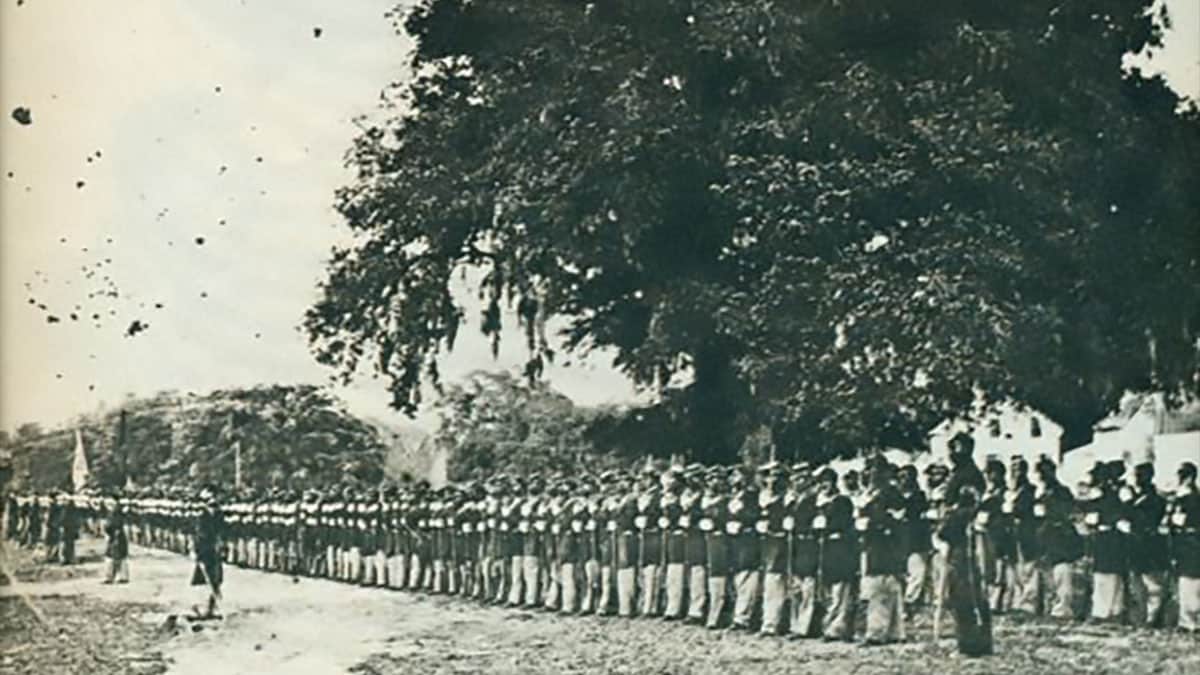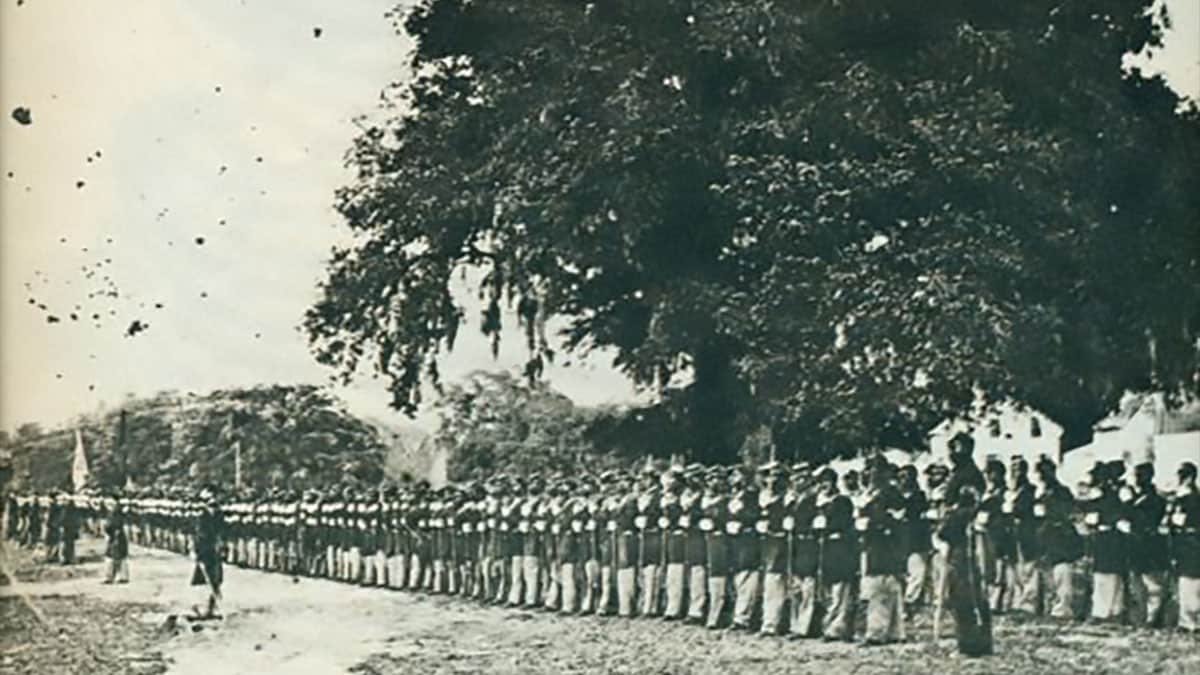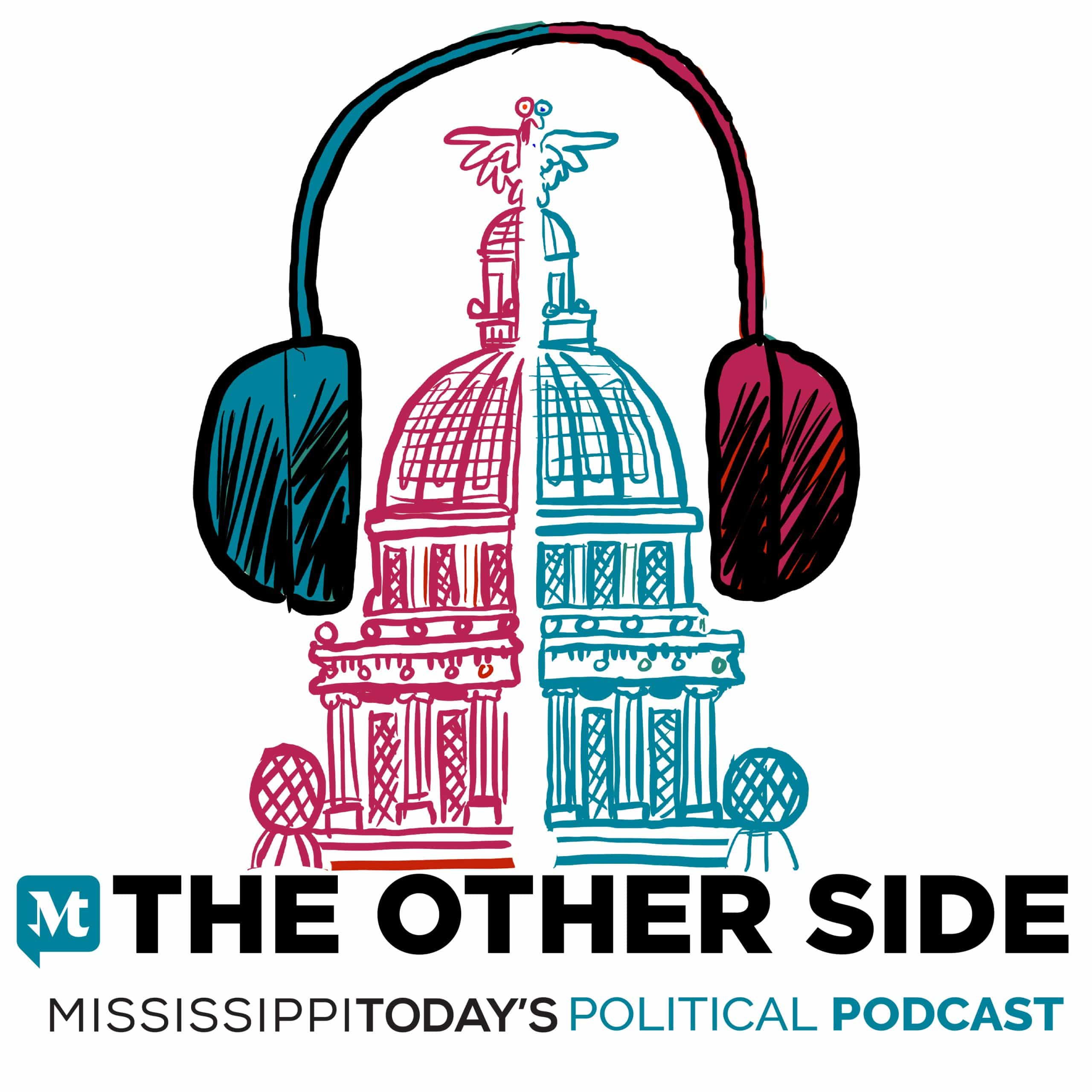Mississippi Today
On this day in 1863


Jan. 31, 1863

The 1st South Carolina Volunteer Infantry Regiment — the Civil War's first combat unit made up of Black soldiers that escaped slavery — officially began their service for the Union Army, even though they had already been fighting for months.
Their commander, Col. Thomas Wentworth Higginson, wrote that the officers did not come “to teach lessons, but to receive them. There were more than 100 men in the ranks who had voluntarily met more dangers in their escape from slavery than any of my young captains had incurred in all their lives.”
With the help of their scout, Harriet Tubman, the regiment conducted successful raids along the coasts of South Carolina, Florida and Georgia. Susie King Taylor, who had just run away from slavery at age 14, became their nurse. She later married one of the soldiers and was reportedly the only Black woman to publish a Civil War memoir.
The regiment helped to capture Jacksonville, Florida, twice, first in March 1863 and later in February 1864. They also helped capture Charleston, South Carolina, serving as part of the city's Union garrison.
Higginson documented the courage of the soldiers: “Till the Blacks were armed, there was no guarantee of their freedom. It was their demeanor under arms that shamed the nation into recognizing them as men.”
This article first appeared on Mississippi Today and is republished here under a Creative Commons license.
Did you miss our previous article…
https://www.biloxinewsevents.com/?p=327178
Mississippi Today
Podcast: The controversial day that Robert Kennedy came to the University of Mississippi

Retired U.S. Bankruptcy Judge Edward Ellington talks with Mississippi Today's Bobby Harrison and Geoff Pender about former U.S. Attorney General Robert Kennedy's speech at the University of Mississippi less than four years after the riots that occurred after the integration of the school. Ellington, who at the time headed the Ole Miss Speaker's Bureau as a law school student, recalls the controversy leading up to the speech.
This article first appeared on Mississippi Today and is republished here under a Creative Commons license.
Did you miss our previous article…
https://www.biloxinewsevents.com/?p=359978
Mississippi Today
On this day in 1961
MAY 20, 1961

A white mob of more than 300, including Klansmen, attacked Freedom Riders at the Greyhound Bus Station in Montgomery, Alabama. Future Congressman John Lewis was among them.
“An angry mob came out of nowhere, hundreds of people, with bricks and balls, chains,” Lewis recalled.
After beating on the riders, the mob turned on reporters and then Justice Department official John Seigenthaler, who was beaten unconscious and left in the street after helping two riders.
“Then they turned on my colleagues and started beating us and beat us so severely, we were left bloodied and unconscious in the streets of Montgomery,” Lewis recalled.
As the mob headed his way, Freedom Rider James Zwerg said he asked for God to be with him, and “I felt absolutely surrounded by love. I knew that whether I lived or died, I was going to be OK.”
The mob beat him so badly that his suit was soaked in blood.
“There was nothing particularly heroic in what I did,” he said. “If you want to talk about heroism, consider the Black man who probably saved my life. This man in coveralls, just off of work, happened to walk by as my beating was going on and said ‘Stop beating that kid. If you want to beat someone, beat me.' And they did. He was still unconscious when I left the hospital.”
To quell the violence, Attorney General Robert Kennedy sent in 450 federal marshals.
This article first appeared on Mississippi Today and is republished here under a Creative Commons license.
Mississippi Today
2024 Mississippi legislative session not good for private school voucher supporters
Despite a recent Mississippi Supreme Court ruling allowing $10 million in public money to be spent on private schools, 2024 has not been a good year for those supporting school vouchers.
School-choice supporters were hopeful during the 2024 legislative session, with new House Speaker Jason White at times indicating support for vouchers.
But the Legislature, which recently completed its session, did not pass any new voucher bills. In fact, it placed tighter restrictions on some of the limited laws the state has in place allowing public money to be spent on private schools.
Notably, the Legislature passed a bill that provides significantly more oversight of a program that provides a limited number of scholarships or vouchers for special-needs children to attend private schools.
Going forward, thanks to the new law, to receive the vouchers a parent must certify that their child will be attending a private school that offers the special needs educational services that will help the child. And the school must report information on the academic progress of the child receiving the funds.
Also, efforts to expand another state program that provides tax credits for the benefit of private schools was defeated. Legislation that would have expanded the tax credits offered by the Children's Promise Act from $8 million a year to $24 million to benefit private schools was defeated. Private schools are supposed to educate low income students and students with special needs to receive the benefit of the tax credits. The legislation expanding the Children's Promise Act was defeated after it was reported that no state agency knew how many students who fit into the categories of poverty and other specific needs were being educated in the schools receiving funds through the tax credits.
Interestingly, the Legislature did not expand the Children's Promise Act but also did not place more oversight on the private schools receiving the tax credit funds.
The bright spot for those supporting vouchers was the early May state Supreme Court ruling. But, in reality, the Supreme Court ruling was not as good for supporters of vouchers as it might appear on the surface.
The Supreme Court did not say in the ruling whether school vouchers are constitutional. Instead, the state's highest court ruled that the group that brought the lawsuit – Parents for Public Schools – did not have standing to pursue the legal action.
The Supreme Court justices did not give any indication that they were ready to say they were going to ignore the Mississippi Constitution's plain language that prohibits public funds from being provided “to any school that at the time of receiving such appropriation is not conducted as a free school.”
In addition to finding Parents for Public Schools did not have standing to bring the lawsuit, the court said another key reason for its ruling was the fact that the funds the private schools were receiving were federal, not state funds. The public funds at the center of the lawsuit were federal COVID-19 relief dollars.
Right or wrong, The court appeared to make a distinction between federal money and state general funds. And in reality, the circumstances are unique in that seldom does the state receive federal money with so few strings attached that it can be awarded to private schools.
The majority opinion written by Northern District Supreme Justice Robert Chamberlin and joined by six justices states, “These specific federal funds were never earmarked by either the federal government or the state for educational purposes, have not been commingled with state education funds, are not for educational purposes and therefore cannot be said to have harmed PPS (Parents for Public Schools) by taking finite government educational funding away from public schools.”
And Southern District Supreme Court Justice Dawn Beam, who joined the majority opinion, wrote separately “ to reiterate that we are not ruling on state funds but American Rescue Plan Act (ARPA) funds … The ARPA funds were given to the state to be used in four possible ways, three of which were directly related to the COVID -19 health emergency and one of which was to make necessary investments in water, sewer or broadband infrastructure.”
Granted, many public school advocates lamented the decision, pointing out that federal funds are indeed public or taxpayer money and those federal funds could have been used to help struggling public schools.
Two justices – James Kitchens and Leslie King, both of the Central District, agreed with that argument.
But, importantly, a decidedly conservative-leaning Mississippi Supreme Court stopped far short – at least for the time being – of circumventing state constitutional language that plainly states that public funds are not to go to private schools.
And a decidedly conservative Mississippi Legislature chose not to expand voucher programs during the 2024 session.
This article first appeared on Mississippi Today and is republished here under a Creative Commons license.
-
Our Mississippi Home6 days ago
Beat the Heat with Mississippi’s Best Waterparks
-
SuperTalk FM3 days ago
State auditor cracking down on Mississippians receiving unemployment benefits
-
Our Mississippi Home7 days ago
Charlie’s U-Pik: Opening Soon for the Summer Season
-
Mississippi News Video5 days ago
Jackson has a gang problem
-
Kaiser Health News6 days ago
Medicaid ‘Unwinding’ Decried as Biased Against Disabled People
-
Local News3 days ago
Family files lawsuit after teen’s suicide in Harrison County Jail
-
Mississippi Today4 days ago
On this day in 1950
-
228Sports6 days ago
George County Pours Runs In 6A South State Title Victory At PRC








































